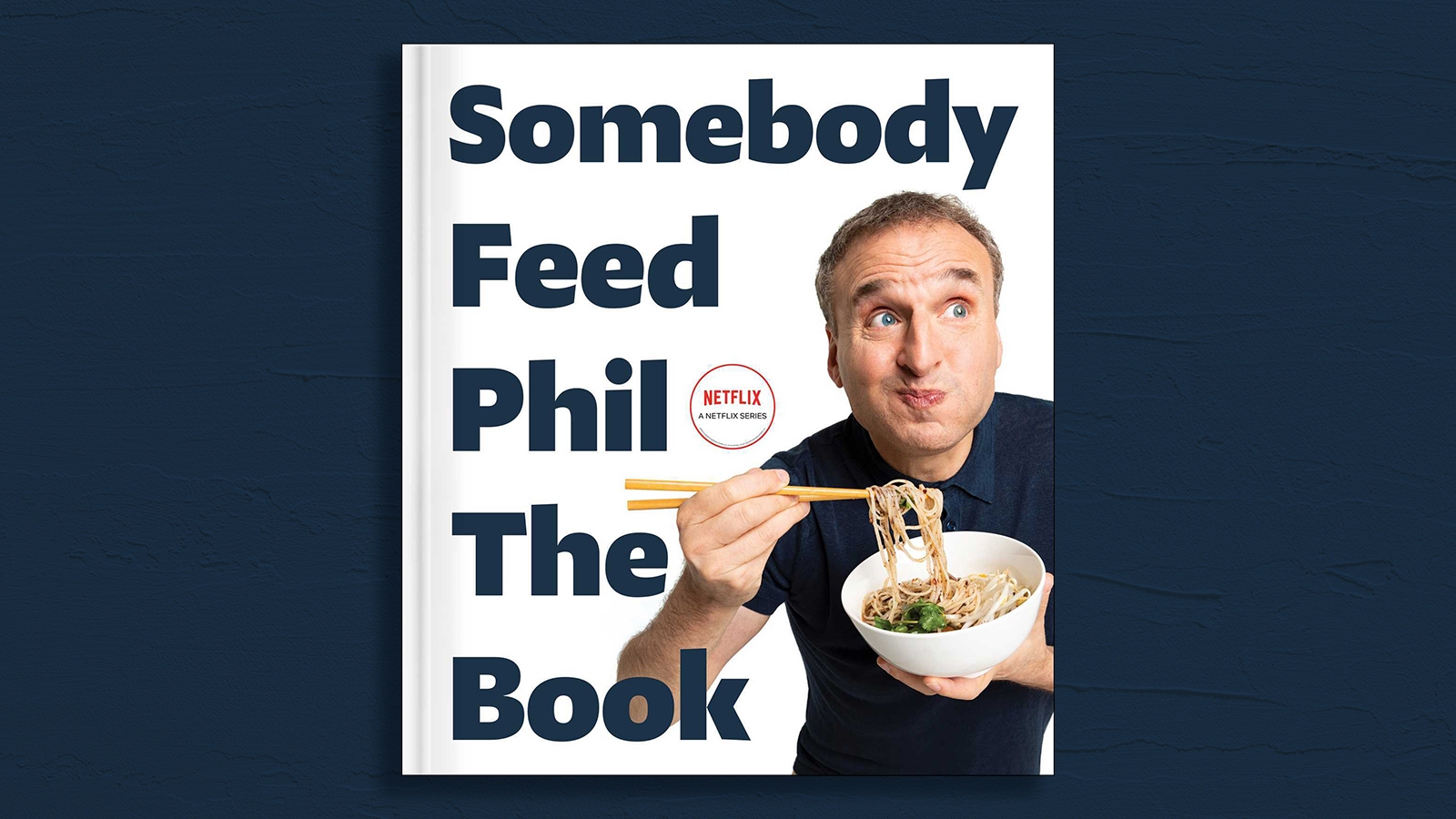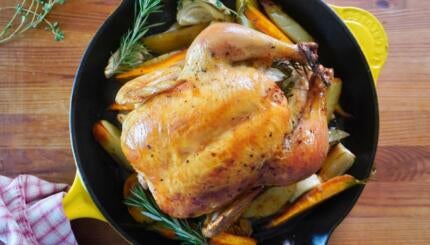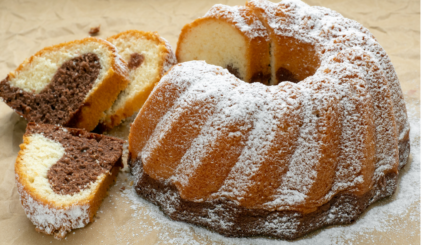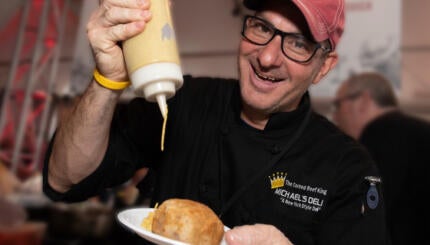Phil Rosenthal, creator of the smash hit “Everyone Loves Raymond,” is a funny guy. Maybe it’s in his DNA. His parents were funny and his home was filled with laughter. What it wasn’t filled with was good or fancy food.
You can see how a person who grew up in a family in which, to quote Rosenthal, “laughter was the currency of the house,” could create a sitcom about the humor built into day-to-day domestic life.
But after “Raymond,” which aired for nine seasons, Rosenthal chose a different path — one that almost seems counterintuitive given his upbringing. His next venture was into the world of food and travel, despite the fact Rosenthal doesn’t cook. And as for travel — does a trip to Atlanta for a cousin’s bar mitzvah and another visit to Miami to stay in his uncle’s apartment count? Because that was the extent of his “seeing the world” in the first 20-plus years of his life.
But in his own charming, wide-eyed and often self-effacing way, Rosenthal has struck gold again with “Somebody Feed Phil” which will begin its sixth season on Netflix on October 18. And on that same day, his book, “Somebody Feed Phil The Book” will be published, too.
The Nosher celebrates the traditions and recipes that have brought Jews together for centuries. Donate today to keep The Nosher's stories and recipes accessible to all.
The book documents the content of his show’s first four seasons in which he traveled, ate and kibbitzed his way through 22 cities around the world. He brought his parents, Max and Helen, along for the ride, too. Each episode included a video visit with them — and sometimes his wife, too — where they shared a good old Jewish joke with the audience. The book — part travelogue, part cookbook and part joke book — is filled with stories from each city, photos of special stops and recipes from the top chefs he met and dined with.
His parents’ jokes are included, too. In the chapter on Copenhagen:
Phil: We went for fried chicken on Ben’s [Rosenthal’s son] birthday.
Max: How is the fried chicken over there?
Ben: Good. It was special fried chicken, it’s not like normal.
Max: It’s not like New York?
Ben: No.
Helen: How was it different?
Ben: It had vinegar on it. Vinegar powder, like a spice.
Helen: Forget that. That’s the end of that chicken.
Tel Aviv was one of the cities Rosenthal visited in the first season of his Netflix show. He made it an early stop because of its incredible food scene.
“The food is undeniably spectacular. Israeli cuisine has taken over the world!” said Rosenthal. “I’ve even had falafel in Copenhagen. Israeli cuisine is an amalgam of the best of the Middle East.”
He was especially smitten by the herring sandwich he had at Sherry Herring in the Port of Tel Aviv. He describes it as “a perfect example of something seemingly simple yet a very sophisticated work of art.” The herring was perfect as was the roll, in which the bread was scooped out. The slivers of hot peppers in the sandwich “are completely unexpected and they modernize the whole sandwich.” You get Eastern European salted fish coupled with North African heat — Israeli society in a sandwich.
He writes about other memorable meals in Israel, like falafel topped with preserved lemons or the Mediterranean fish he had at the world renowned Uri Buri restaurant in Acco, the recipe for which is included in the book.
In the chapter on Buenos Aires:
Helen: How are you? I loved to see you dancing the tango. That was my favorite.
Phil: That was the most frightening thing I’ve done on the show so far.
Helen: You looked terrific.
Max: Yeah, but you danced a little bit . . . klutzy.
Helen: No he didn’t!
Max: Stick to what you do best, your gab . . . your gift for gab. Forget the dancing.
His Jewish food experiences were not relegated to Israel alone. In Buenos Aires, he ate at Tomas Kalika’s restaurant, Mishiguene, at which, he wrote, “those pastrami ribs are what happens when you put a brilliant Jewish chef in the middle of beef country.” The recipe is in the book. Or the vegan shawarma sandwich made with celery root, courtesy of London-based, Israeli-born chef Yotam Ottolenghi, which he says is “better than most burgers I have had in my life.”
He was delighted by the chicken soup he had in Seoul, and he told his parents it was as good as what they might get at the deli Fine and Schapiro in New York. He ate bagels at St-Viateur Bagel Shop in Montreal where they “put honey in the water they use to boil the bagels,” he writes.
Does Rosenthal make a point to visit Jewish restaurants wherever he goes?
“I really don’t,” he said. “It’s just that Jewish chefs are so ubiquitous. They are all over the world. You know what the top rated restaurant is in New Orleans? Alon Shaya’s restaurant, Saba. You wouldn’t go to New Orleans to have Israeli food but if you’re smart you should!”
He didn’t have to search far in his chapter on New York for Jewish food stops. Although he is the first to acknowledge that he “inherited my parents’ talent for cooking,” he did share his own recipe for a chocolate egg cream. He ends the chapter with his mother’s and then French chef Daniel Boulud’s recipes for matzah ball soup.
And while Rosenthal now lives in Los Angeles, he returned to his New York roots to break the Yom Kippur fast. A week before the holiday, he told The Nosher: “I have already put in my order to Russ & Daughters. There’s a deep spiritual connection there. They ship via Goldbelly! They have a break fast package for 4-6 or 8-10 people and I got the big boy.”
This makes sense as he considers appetizing to be his favorite Jewish food, and Russ & Daughters’ nova is his favorite smoked salmon. “So silky and beautiful,” he said. “I don’t know what they do. Maybe it’s the way they cut it?”
Although his parents are no longer alive — his mom died in 2019 and his father in 2021 — the connection to his show and to his food adventures continues through his wife, actress Monica Horan, and their two children, Lily and Ben. For Rosh Hashanah, Ben and his cousin Jeremy prepared Chef Michael Solomonov’s recipe for lamb with pomegranate molasses which, Rosenthal said, “was spectacular! I was so proud of them!”
The first show of season six takes place in Philadelphia. Rosenthal will be doing a book tour stop there where he will show the Philadelphia episode and then be interviewed by Solomonov,
Rosenthal is delighted that his kids are as excited by food as he is. “I started them young,” he said.



